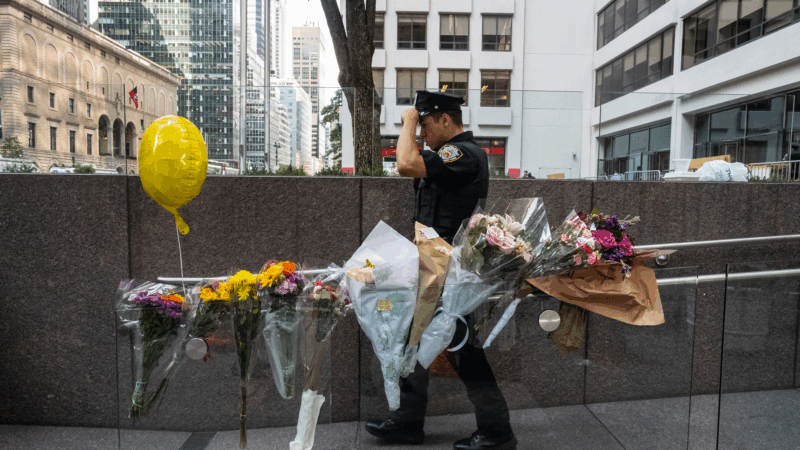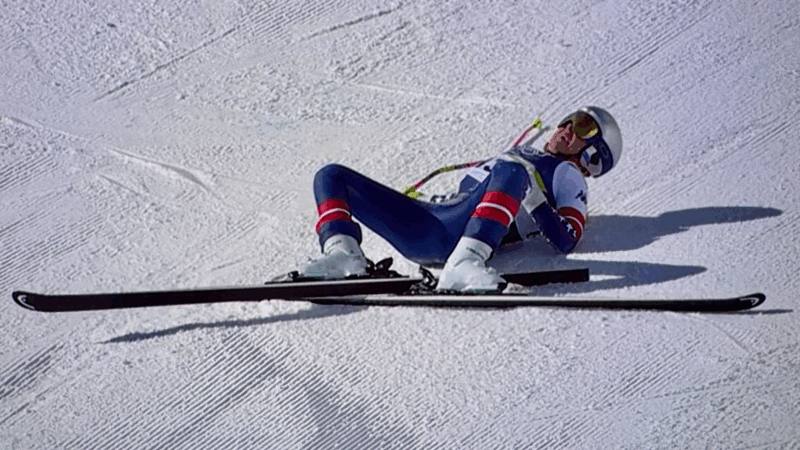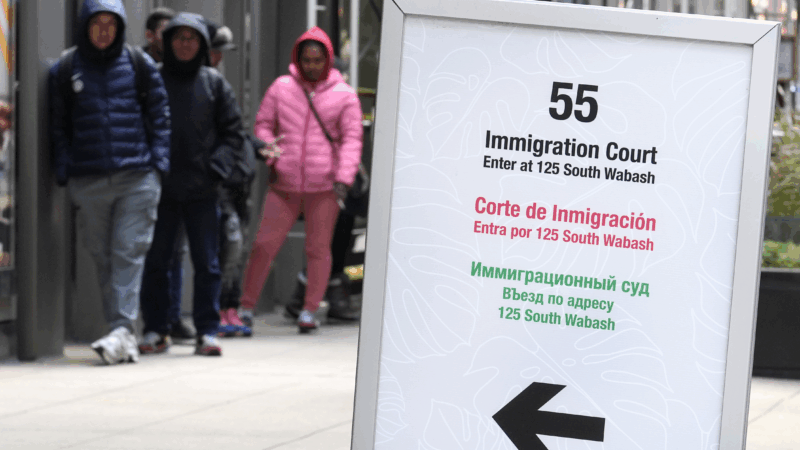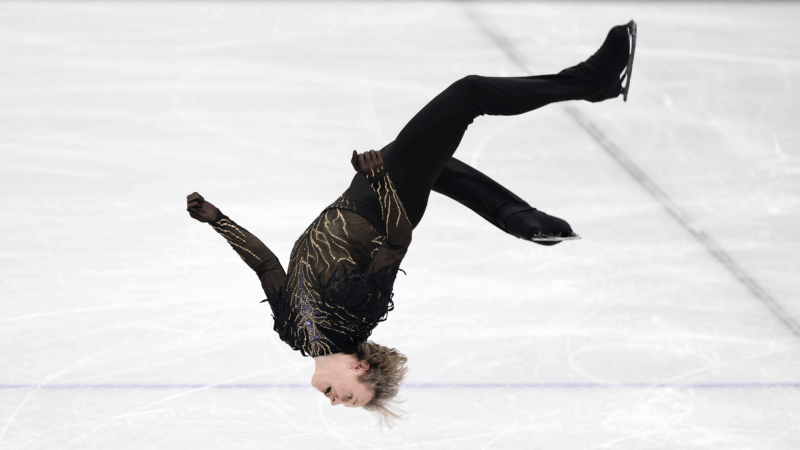NYC shooter had two ‘mental health holds’ in Las Vegas. They didn’t affect his legal right to own guns
Records released this week by Las Vegas Metropolitan Police confirm they had several contacts in recent years with Shane Tamura, the 27-year-old man who drove to New York and killed four people on July 28. The records show he was known to suffer from mental illness, had been the subject of two emergency psychiatric evaluations, and yet was still allowed to buy firearms legally — including the AR-15-style rifle used in New York.
The information includes 911 calls from Tamura’s mother, who reported that her son was suicidal, and that he’d been diagnosed with anxiety, depression and bipolar disorder. She also told dispatchers her son had owned a gun in the past, and might still have one.
The incidents, in 2022 and 2024, both resulted in police filing paperwork to commit Tamura to emergency psychiatric care, often referred to as a “mental health hold.”
Tamura was still allowed to buy firearms because Nevada doesn’t automatically upload information about temporary mental health holds to the National Instant Criminal Background Check System (NICS), according to Jeff Swanson, a Duke University professor who studies the intersection of law and public safety, and has written about the firearms background check system.
“About half the states do have a law that would render one of those short-term holds — a 72-hour hold — a gun-disqualifying record,” Swanson says. But not Nevada.
“Under Nevada law, a law enforcement officer or health care professional can initiate a 72-hour emergency mental health [hold] for a person deemed [a] danger to [him or herself] or others. This does not automatically trigger a firearm prohibition under federal or state law, unless it progresses to a court-ordered involuntary commitment,” he wrote to NPR in an email. “These emergency holds by themselves are not reported to NICS and wouldn’t show up in a background check.”
Swanson adds that when it comes to identifying people who pose a risk, the criteria for inclusion in the NICS federal background check system for mental incapacity “tend to be too broad and too narrow at the same time.”
Under federal law, a person must be “adjudicated” as a “mental defective” by a court or other authority before being included in the national list of people prohibited from buying guns. NICS currently has more than eight million names in that category.
“They identify lots of people who are never going to be violent, but they might have had a civil commitment 20 years ago. And then there are a lot of other people who might have really impulsive anger traits and a really short fuse and they’re not prohibited, necessarily, because they don’t have one of these records,” Swanson says.
Swanson puts more stock in “red flag” laws, which allow police and sometimes family members to ask courts to issue emergency risk protection orders, or ERPOs, for someone in a mental health crisis who’s deemed a threat to self or others.
Twenty-one states have red flag laws, including Nevada. Its law allows a court to confiscate a person’s guns, and block that person’s right to buy new ones, for up to one year.
If a year-long ERPO had been issued for Tamura after his last mental health hold, last August, he would not have been allowed to buy the rifle he used in New York last month — at least, not legally. But there’s no record the police tried to get an order for him.
April Zeoli, a gun violence researcher at the University of Michigan, says there’s great variation in how often ERPOs are requested, from one place to another.
“Mainly, this is on law enforcement, and how much they know about it,” she says. “If a jurisdiction, a state, a locality isn’t actively training law enforcement officers on how to use this, it won’t be used.”
She says officers should be given step-by-step instructions for how to ask a court to intervene when a gun owner appears to have become a danger. In 2022, the Nevada attorney general’s office announced a program to pay for some red flag law training for police and affected family members.
But Nevada continues to lag far behind other states in the number of ERPOs issued by courts: only 28 in 2024, compared to thousands per year in states such as California and Florida. Politics may also play a role. The state’s red flag law passed in 2019 with no Republican support, and some sheriffs in other parts of the west have resisted using the laws, calling them a threat to gun rights.
Transcript:
JUANA SUMMERS, HOST:
Police in Las Vegas have released more information about Shane Tamura, the 27-year-old man who, last week, drove to New York and killed four people then himself. Documents confirm he was twice taken in for what authorities called mental health crisis interventions. But as NPR’s Martin Kaste reports, there is no indication that this affected his legal right to have a gun. A warning to listeners, there are several references to suicide in this story.
MARTIN KASTE, BYLINE: The most recent mental health intervention was last August. Here’s a recording of the Las Vegas 911 dispatchers.
(SOUNDBITE OF ARCHIVED RECORDING)
UNIDENTIFIED DISPATCHER: Yeah, I got a call from the mother. She got a call from her son. Son called her crying, saying he was suicidal.
KASTE: His mother said he had anxiety, depression and bipolar disorder. She also said he’d owned a gun and might still have it. As first responders arrived, he was calm but glum. And the Las Vegas Metro Police officer filled out paperwork to get him a psychiatric check, sometimes called a mental health hold. It was his second one in two years. And so the question now after his attack in New York is, shouldn’t those mental health holds have stopped him from legally buying guns?
JEFF SWANSON: Yeah, that’s an important question, and the answer is, it depends.
KASTE: Jeff Swanson studies the intersection of law and psychiatry at Duke University. One thing he studied is the federal background check system for gun purchases. It’s the list of people barred from buying guns for various reasons, including about 8 million people who’ve been adjudicated to be, in the words of the federal law, mental defectives. So wouldn’t that list include someone who’s had a mental health hold?
SWANSON: It depends on the state because about half the states do have a law that would render one of those short-term holds, a 72-hour hold, a – you know, a gun-disqualifying record.
KASTE: Nevada is not one of those states, Swanson says. Short-term mental health holds don’t get uploaded into the federal background check system. But he also thinks people shouldn’t put too much stock in that federal list when it comes to limiting the risk of gun violence.
SWANSON: They identify lots of people who are never going to be violent, but they might have had a civil commitment 20 years ago. And then there are a lot of other people who, you know, they might have really impulsive anger traits and, you know, a really short fuse, and they’re not prohibited necessarily because they don’t have one of these records.
KASTE: Swanson says a better way to reduce risk may be red flag laws through which police can get a temporary court order to separate a person from his or her guns during a mental health crisis. Studies show it can reduce the likelihood of a person in crisis using a gun, especially for suicide. And Nevada has a red flag law. Police could have blocked this man from buying guns in the year leading up to the shootings in New York. But there’s no record they tried to do so.
APRIL ZEOLI: Mainly, this is on law enforcement and how much they know about it.
KASTE: April Zeoli of the University of Michigan studies how these laws are used. Some states use them thousands of times a year, while others, like Nevada, rarely.
ZEOLI: If a jurisdiction, a state, a locality isn’t actively training law enforcement officers on how to use this, it won’t be used.
KASTE: The Nevada attorney general’s office has offered training sessions for local police in an effort to increase their numbers. But politics and local culture may also play a role. In some states, these red flag laws have become partisan issues. Nevada’s law passed in 2019 without Republican support. And elsewhere in the West, some sheriffs have come out against using the laws, calling them a threat to Second Amendment rights. Martin Kaste, NPR News.
SUMMERS: And if you or someone you know may be considering suicide or is in crisis, call or text 988 to reach the Suicide & Crisis Lifeline.
(SOUNDBITE OF JAKE XERXES FUSSELL SONG, “WASHINGTON”)
Lindsey Vonn says she suffered ‘complex tibia fracture’ in her Olympic downhill crash
The 41-year-old star said her torn ACL was not a factor in her crash. "While yesterday did not end the way I had hoped, and despite the intense physical pain it caused, I have no regrets," she wrote.
Guerilla Toss embrace the ‘weird’ on new album
On You're Weird Now, the band leans into difference with help from producer Stephen Malkmus.
Nancy Guthrie search enters its second week as a purported deadline looms
"This is very valuable to us, and we will pay," Savannah Guthrie said in a new video message, seeking to communicate with people who say they're holding her mother.
Immigration courts fast-track hearings for Somali asylum claims
Their lawyers fear the notices are merely the first step toward the removal without due process of Somali asylum applicants in the country.
Ilia Malinin’s Olympic backflip made history. But he’s not the first to do it
U.S. figure skating phenom Ilia Malinin did a backflip in his Olympic debut, and another the next day. The controversial move was banned from competition for decades until 2024.
‘Dizzy’ author recounts a decade of being marooned by chronic illness
Rachel Weaver worked for the Forest Service in Alaska where she scaled towering trees to study nature. But in 2006, she woke up and felt like she was being spun in a hurricane. Her memoir is Dizzy.






